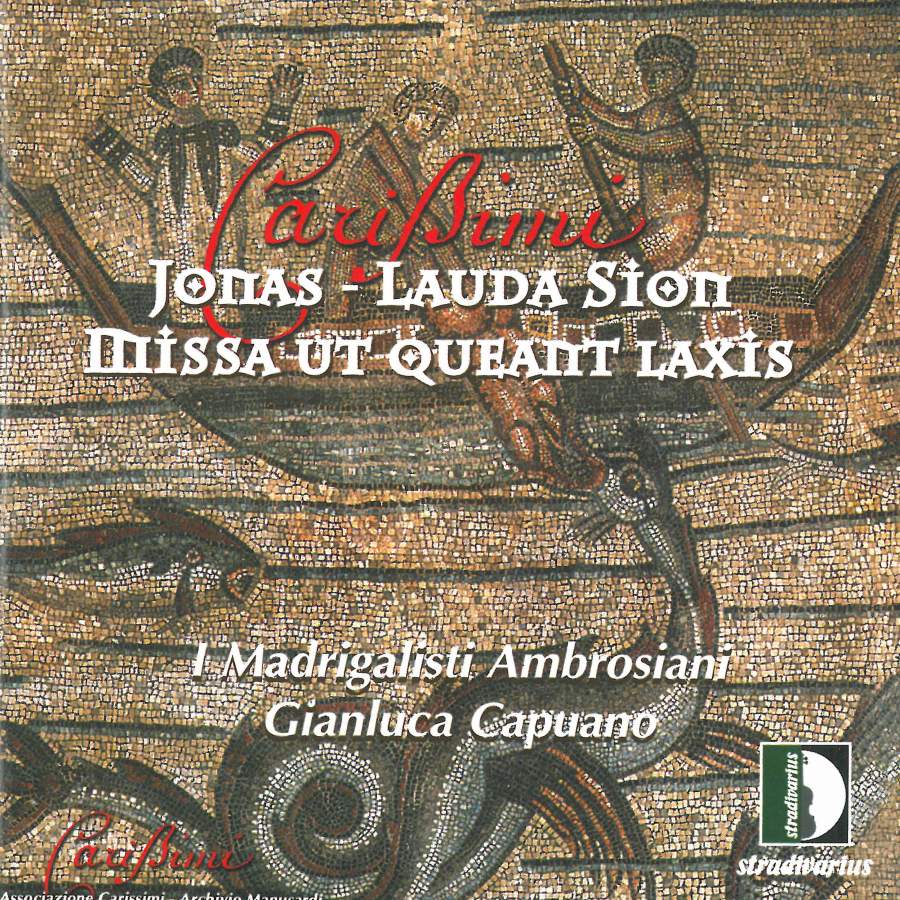Logowanie
Dziś nikt już tak genialnie nie jazzuje!
Bobby Hutcherson, Joe Sample
San Francisco
SHM-CD/SACD - NOWY FORMAT - DŻWIĘK TAK CZYSTY, JAK Z CZASU WIELKIEGO WYBUCHU!
Wayne Shorter, Freddie Hubbard, Herbie Hancock, Ron Carter, Elvin Jones
Speak no evil
UHQCD - dotknij Oryginału - MQA (Master Quality Authenticated)
Chesky! Niezmiennie perfekcyjny
Winylowy niezbędnik
ClearAudio
Double Matrix Professional - Sonic
najbardziej inteligentna i skuteczna pralka do płyt winylowych wszelkiego typu - całkowicie automatyczna
CARISSIMI, I Madrigalisti Ambrosiani, Gianluca Capuano
Jonas Lauda Sion Missa ut Queant Laxis
- 1. Missa Ut Queant Laxis: Introito - 4:12
- 2. Missa Ut Queant Laxis: Kyrie - 1:58
- 3. Missa Ut Queant Laxis: Christe - 0:58
- 4. Missa Ut Queant Laxis: Kyrie (2) - 1:34
- 5. Missa Ut Queant Laxis: Gloria - 5:07
- 6. Missa Ut Queant Laxis: Canzon Dopo L'Epistola - 1:52
- 7. Missa Ut Queant Laxis: Credo - 6:57
- 8. Missa Ut Queant Laxis: Sanctus - 0:50
- 9. Missa Ut Queant Laxis: Toccata Per L'Elevatione - 5:21
- 10. Missa Ut Queant Laxis: Agnus - 1:00
- 11. Lauda Sion - 9:26
- 12. Historia Joane: Symphonia - 1:10
- 13. Historia Joane: Cum Repleta - 0:36
- 14. Historia Joane: Surge, Surge Jona - 0:44
- 15. Historia Joane: Audivit Jonas - 0:40
- 16. Historia Joane: Et Cum Processisset - 0:19
- 17. Historia Joane: Et Praeliabantur Venti - 2:24
- 18. Historia Joane: Dii Magni - 2:06
- 19. Historia Joane: Jonas Autem - 0:40
- 20. Historia Joane: Quid Tu Sopore Deprimeris? - 0:24
- 21. Historia Joane: Venite, Venite - 0:27
- 22. Historia Joane: Miserunt Ergo Sortem - 0:19
- 23. Historia Joane: Indica Nobis - 0:24
- 24. Historia Joane: Hebraeus Ego Sum - 0:23
- 25. Historia Joane: Quid Faciemus Tibi - 0:19
- 26. Historia Joane: Tollite Me - 0:46
- 27. Historia Joane: Tulerunt Nautae Jonam - 0:30
- 28. Historia Joane: Et Preparavit Dominus - 0:30
- 29. Historia Joane: Iustus Es, Domine - 6:08
- 30. Historia Joane: Et Imperavit Dominus - 0:21
- 31. Historia Joane: Et Crediderunt Ninivitae - 0:29
- 32. Historia Joane: Peccavimus, Domine - 2:30
- I Madrigalisti Ambrosiani - orchestra
- Gianluca Capuano - conductor
- CARISSIMI
In many ways, Giacomo Carissimi - was quite literally - singularly unusual among the composers of the Italian baroque. Despite his enormous artistic stature, he was a humble man who didi not seek the limelight and who lived for his art alone. This lack of ego was as rare in his day as it is in aurs but fate was to play a cruel joke on him nonetheless. A papal decree stated that his manuscripts were to be preserved in the archive of the Collegium Germanicum so that they would be handed down to his successors intact. However, the opposite happened and they were completely lost. Thus it is that Carissimi enjoys a great reputation, yet there is a glaring lack of first-hand sources of his work.


































